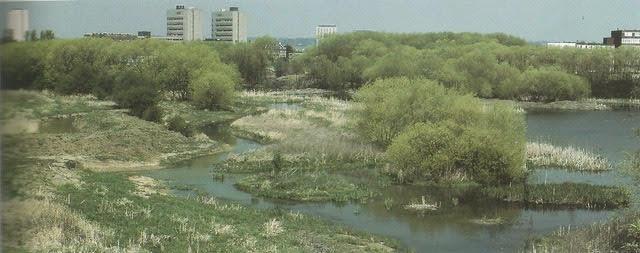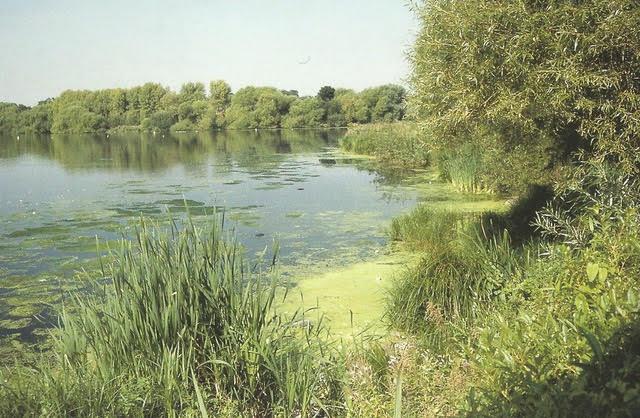Friends of the Welsh Harp blog
Did you know the Welsh Harp used to have park rangers? This blog is written by an ex-park ranger.

The Welsh Harp in the 1980s. Credit: Leo Batten
Will Griffin writes about his time as park ranger of the Welsh Harp in the 80s and 90s:
I worked for Barnet Council as a park ranger from 1989 to 1996. A team of 24 rangers patrolled numerous parks including land around the reservoir. A team of six, covering the Hendon area, was based at Woodfield Nursery on Cool Oak Lane. The main role was patrolling the parks, enforcing by-laws and opening and closing parks and changing rooms.
The park keepers role of supervising parks and selling tennis court tickets had come to an end. This was because the gardening contract was put out to tender, with the public relations role removed from it. Park keepers worked overtime, on evenings and weekends, usually in the parks where they knew the public very well. It would be a huge challenge for our small team to replace the huge team of gardeners who used to do park duty. Mobile patrols through a long list of parks would have to replace static staff.
The Welsh Harp and other nature reserves demanded a different approach. We soon developed a series of guided walks for adults and school groups. We also worked closely with Brent Council's Ranger, a skilled botanist, who looked after their part of the site. We supported the work of the Welsh Harp Conservation Group in order to maintain wildlife habitats at the Welsh Harp. We were on hand to meet contractors, liaise with National River Association and other bodies and supervise groups of volunteers doing conservation work.
Our presence reduced littering, trespassing from motorcyclists and illegal fishing, to some extent. Staff at the dog warden service and the Welsh Harp Sailing Base were also very supportive and their presence also did much to reduce anti-social behaviour and make the reservoir a safer place to visit.

The Welsh Harp in the 1980s. Credit: Leo Batten
After the ranger service was discontinued in 1996 all of these problems have increased. The provision of environmental education has also suffered. At times the Welsh Harp has looked neglected.
Many of the better managed nature reserves have ranger services run by the local authority and supported by friends of groups. One or two staff have limitations on what they can achieve on a large site, but with the support of a group of volunteers large areas of land can be managed for nature conservation and public enjoyment. Unfortunately providing ranger services is expensive and is a non-statutory service. Steady cutbacks have meant that these services have been cut in order to protect key services like education.
As London's population has grown open spaces have become even more vital for public health and relaxation. Pressure on wildlife from disturbance, climate change and over development has increased. Having a network of attractive and well managed nature reserves, parks and sports facilities seems as important as ever. Providing specialist staff including park rangers to support this work seems like a good way forward.
